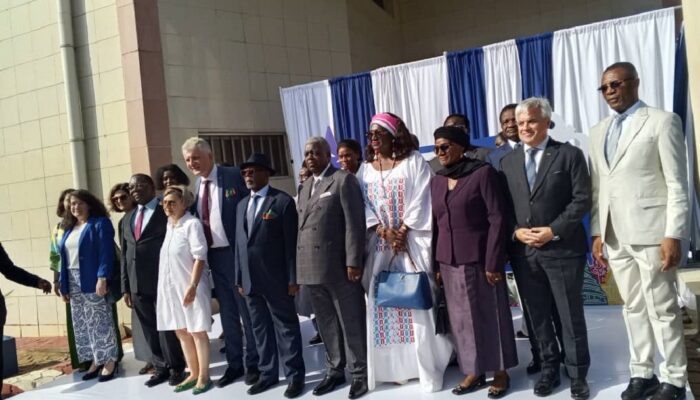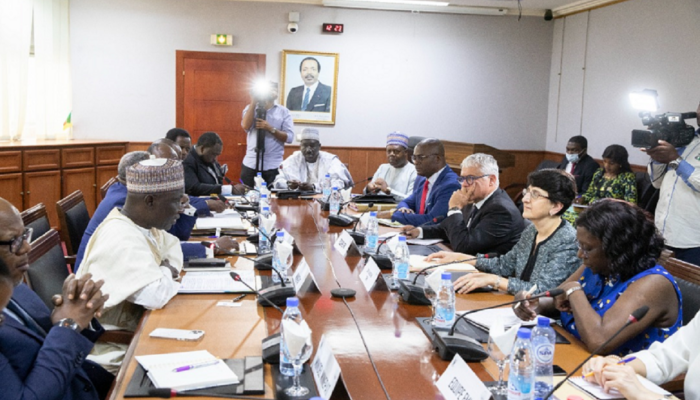The Ministry of Public Works of Cameroon is increasing the number of meetings to identify solutions to reduce the costs of road construction and maintenance. The most recent, on November 4 in Yaoundé, allowed stakeholders in the construction chain to reflect together on the optimization of techniques and the use of local resources.
In Yaoundé, the Minister of Public Works, Emmanuel Nganou Djoumessi, chaired an important meeting on November 4 with engineers, experts, members of the National Order of Engineers, heads of technical design offices and representatives of the National Civil Engineering Laboratory (Labogenie). The purpose of the meeting was to discuss concrete strategies to reduce the costs of road construction and maintenance in Cameroon. For the ministry, it is a question of optimizing methods and taking advantage of local materials in order to increase the longevity of road infrastructure.

Cameroon, like many other developing countries, is facing the challenges of modernizing its road network. However, the heavy reliance on imported materials and expensive techniques makes this mission onerous. Hence the government’s desire to rethink pavement design techniques and encourage more systematic use of local resources.
A significant portion of road construction expenditure is devoted to pavement layers. These represent between 25% and 40% of the cost of asphalting works and can reach up to 70% of the costs of certain rehabilitation works. According to the ministry, the composition and thickness of pavement layers are key elements in optimizing costs. By reducing imported materials in favor of local resources, and by adopting construction methods adapted to the Cameroonian context, it is possible to reduce expenditure without compromising the quality of infrastructure.
For Minister Nganou Djoumessi, this approach could have a significant impact. It would not only reduce construction and maintenance costs, but also create a more resilient and sustainable road network, capable of withstanding local climatic and geological conditions.
The discussions during this consultation resulted in a variety of technical proposals, based on the experience of the various stakeholders. The objective is to set up a specific road design guide for Cameroon, adapted to the materials available in each region. To this end, Labogenie was tasked with mapping local materials by region. This work will facilitate their exploitation and better guide future constructions and rehabilitations.
One of the benefits of this initiative is the reduction in the need for imports of expensive materials, particularly gravel and bitumen, which are often purchased in foreign currency. By exploiting local resources, Cameroon could also promote job creation in the regions where these materials are extracted.
The meeting of November 4 is only a first step. A new working session is planned for November 11, during which the contributions collected will be consolidated. This next phase will be crucial for the development of a catalog and a guide for the dimensioning of roadways, intended to supervise future road constructions in the country.
Through this initiative, the ministry hopes to extend the life of existing infrastructure and reduce future maintenance costs. A more sustainable approach, which reflects an awareness of the State’s budgetary constraints and the need for a road network capable of supporting Cameroon’s economic and social development.






